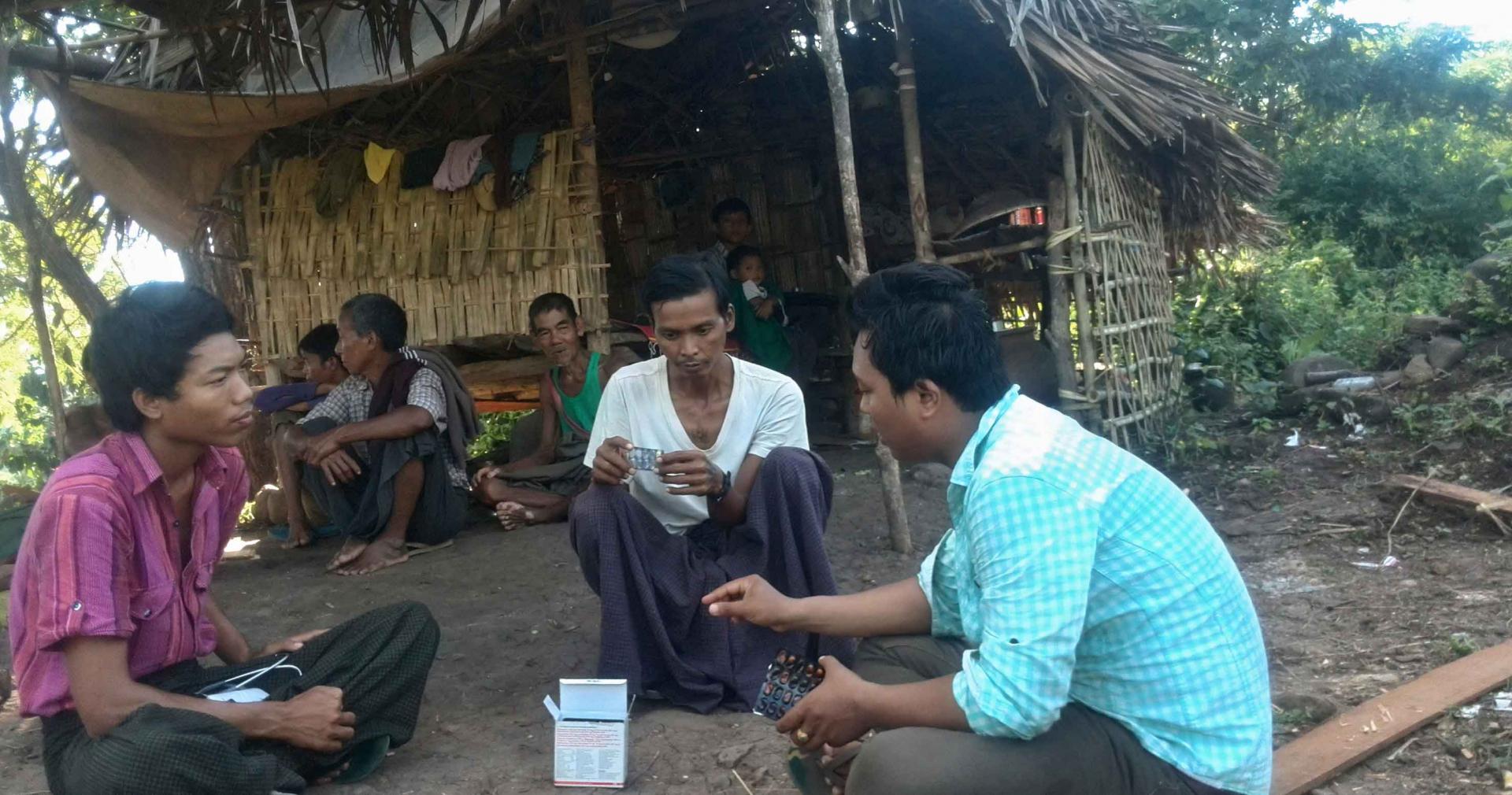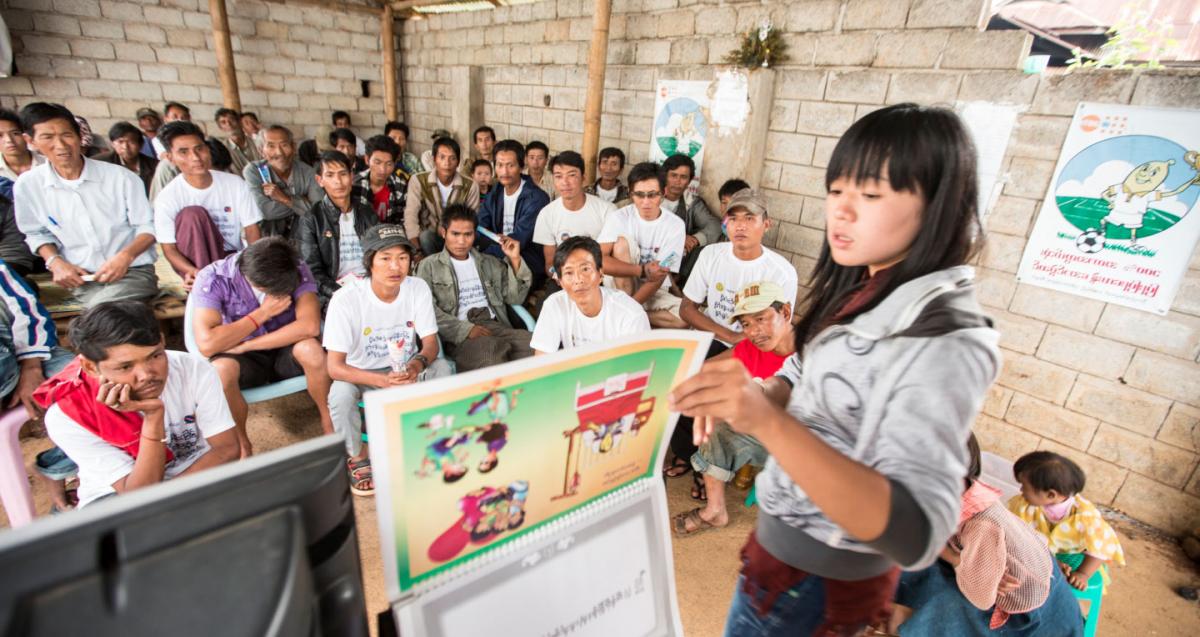The Myanmar Health Assistant Association’s Global Fund supported TB project has brought lifesaving TB treatment services to within the reach of socio-economically disadvantaged people with limited access to quality health care services in remote villages of Myanmar. The recovery from TB of Ko Win Zaw, a 40-year old former mine worker, is one example of how the Global Fund grant has helped save the lives of many poor people in need, who have limited means to seek appropriate care and treatment for TB in the remote areas of the country.
Since 2011, with support from the Global Fund, MHAA has been implementing its “Stop TB, Fight TB Together” project in Meiktilar, Mahlaing Tharzi, Wundwin, Seik Phyu, Myaing and Pakokku townships in the dry zone of central Myanmar, where TB prevalence is high. The project coverage area is successfully being expanded to Pale, Kani and Tantse townships from 2014 onwards.
The project activities include raising awareness about TB, and promoting treatment-seeking and the services available for TB. The MHAA’s project coordinator in charge of Pale Township, U Chan Myae Linn, and volunteer TB health worker, Ko Nay Linn Htun, learnt about Ko Win Zaw’s illness from his wife, during a health talk at Jat village in Pale Township.
“Sayar, my husband has been ill with fever and persistent cough for more than one month. Despite treatment, his cough has not improved but got worse. He often has streaks of blood in his sputum. Please kindly help him to get the necessary treatment”, asked Ma Kyi Kyi Aye, Ko Win Zaw’s wife, after she had learnt about the symptoms of TB and how to seek treatment from the health talk organized by MHAA.
After walking for about 35 minutes from Jat village along a dusty path, a row of huts came into their view. They saw gravely-ill Ko Win Zaw in a small hut lying on a bed. It did not take long to decide that he was probably suffering from TB.
The project provides free TB testing; nutritional support; patient utensils; travel costs to go to the hospital to take treatment; and education to the patients and their families on how TB treatment should be taken, how to seek care for side-effects, how to properly dispose of sputum to protect themselves and prevent further transmission to other residents of the village who are in contact. Patients are also shown how to cough up a sputum sample for testing. Ko Nay Linn Htun himself brought Ko Win Zaw’s sputum cups for testing at the hospital in Pale, where it was confirmed he had TB.
Now Ko Win Zaw is well into two months of anti-TB treatment and he can work to earn his living and support his impoverished family as before.
“I am greatly thankful for the TB treatment and care services provided by the MHAA’s Global Fund supported TB project. The project has not only brought anti-TB medicines to us, but also an array of essential care and support services. This will prevent further spread of TB and reduce the risk of drug resistance”, said Ko Win Zaw with a radiant smile as he greeted the MHAA supervision team during a visit to his home.



